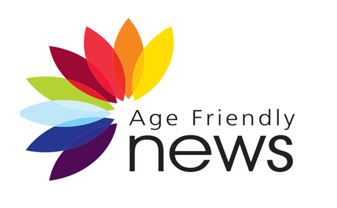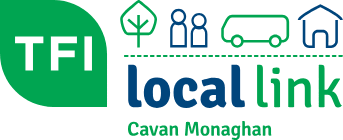
Healthy Age Friendly Homes (HAFH), a first-of-its-kind programme to enable older adults to continue living independently, launches nationwide today (10 July). This joint Health and Local Government programme, recognised globally as a best practice example of coordinated support services, will assist up to 10,500 older adults each year through timely interventions. It is estimated that the programme will result in an annual saving of €41.5 million to the State through the prevention of hospitalisation and early or unnecessary admission to long-term residential care.
The programme’s key partners include the Department of Health; Health Service Executive (HSE); Department of Housing, Local Government and Heritage; Age Friendly Ireland, and the Sustainable Energy Authority of Ireland (SEAI).
Following a two-year pilot across nine sites, the programme is now expanding to all 31 local authorities. Local Healthy Age Friendly Homes Coordinators will manage support packages — across Housing, Health, Technology, Finance, Energy Efficiency and Social/Community — for each person referred. Home-based assessments will identify a diverse range of supports to enable the older person to continue living independently – whether in their own home or in more suitable housing. These supports could include housing adaptations, rightsizing to a more appropriate home, and assistive technology such as age-friendly tablets or wearable PanPan. It will also provide connections to services such as occupational therapists, social and community groups like Meals on Wheels and transportation to hospital appointments.
Speaking about the support she has received through the pilot scheme, 75-year-old Dublin resident, Nola Watt said: “Transitioning to a more suitable home was initially daunting, but the support from Age Friendly Ireland and my Local Healthy Age Friendly Homes Coordinator made it a smooth process. I moved from a three-bedroom house to an apartment that perfectly suits my current needs. I encourage other older adults to explore the services offered. For me, it was rightsizing, but for others, it could be anything from getting assistance in applying for a housing adaptation grant to getting a personal alarm in case of a fall. It’s reassuring to know there’s a network of support dedicated to helping us live well as we age.”
An evaluation conducted by Maynooth University involving over 2,130 participants during the pilot phase revealed significant improvements in self-reported health status, quality of life, social support, and functional ability. The Healthy Age Friendly Homes – Pilot Evaluation released today, underscores the programme’s success in enhancing the well-being of older adults. In total there were 6,908 supports delivered between May 2021 and December 2023. Of the participants surveyed, over 3,270 people received home visits; over 1,400 participants live in urban areas; 963 participants indicated housing adaptations were required in their home, with 347 having been assisted in making a housing adaptation grant application and 376 were provided information on housing adaptation grants for consideration and follow-up. The report also found that 74% of programme participants own their home; 51% live alone; 37% live with a significant other; and 11% live in their own home with a family member.
More than 50% of research participants now feel they have strong levels of social support, a 9% increase, with almost 4 out of 5 research participants reporting having greater self-belief in their ability to respond to new or difficult situations.
Minister for Mental Health and Older People, Mary Butler, who launched the national rollout said: “I am delighted to launch the Healthy Age Friendly Homes Programme, having overseen its development from an initial pilot across nine sites in 2021 to a full national rollout in 2024. The programme is open to referrals nationwide with local coordinators now in place in each of the 31 local authorities. The pilot phase of the programme has demonstrated that it has and will have a positive impact on the quality of life for our older people and help them to live at home for longer. It is a wonderful example of Sláintecare in action, working across multiple sectors and government departments to deliver a truly person-centred care programme that tailors supports to the needs of each person.”
Minister for Local Government and Planning, Alan Dillon TD, at Department of Housing, Local Government and Heritage, launching the report said: “Positive ageing is a priority for this government and ensuring older people make informed decisions on their housing needs is key. The policy context for delivery of Healthy Age Friendly Homes is Housing for All, which sets out to increase the housing options available to older people to facilitate ageing with dignity and independence, including an emphasis on rightsizing and health supports for ageing in place. Healthy Age Friendly Homes has great potential to be a major component in the broader strategy to prepare society for the projected increase in the older demographic. I commend Meath County Council and Age Friendly Ireland Shared Service for hosting this innovative programme, and all 31 Local Authorities for their critical participation in the delivery of this service.”
The approach taken by HAFH has been cited by the World Health Organisation as a best practice example for the provision of person-centred integrated care for older people.
Mark Harrington, National Manager of Healthy Age Friendly Homes added: “International evidence shows that the environment — Housing, Health, Technology, Finance, Energy Efficiency and Social/Community— greatly influences how older adults manage at home. The HAFH initiative is poised to support up to 10,500 older adults across Ireland each year, ensuring they receive the right support, at the right time, in the right place. There are currently 44 Local Healthy Age Friendly Homes Coordinators across Ireland, meaning from Dublin to Limerick; from Galway to Waterford, there is a coordinator — or even in some regions two coordinators — in your local authority.”
“Residential care homes are essential when needed, but this service aims to prevent early admission by ensuring timely interventions. While there is an estimated annual saving of €41.5 million to the State, HAFH focuses on enhancing quality of life and supporting independent living, rather than solely on cost-effectiveness. Our goal is to provide alternatives to older people, reducing the risk of hospitalisation, premature entry into long-term care, and social isolation through a well-rounded model of care. This person-centred approach ensures that the older person is at all times the decision maker in the supports required.”
HAFH services are available across all 31 local authorities in Ireland. Applications can be made through the HAFH National Office or online at https://agefriendlyireland.ie/healthy-age-friendly-homes-programme/


